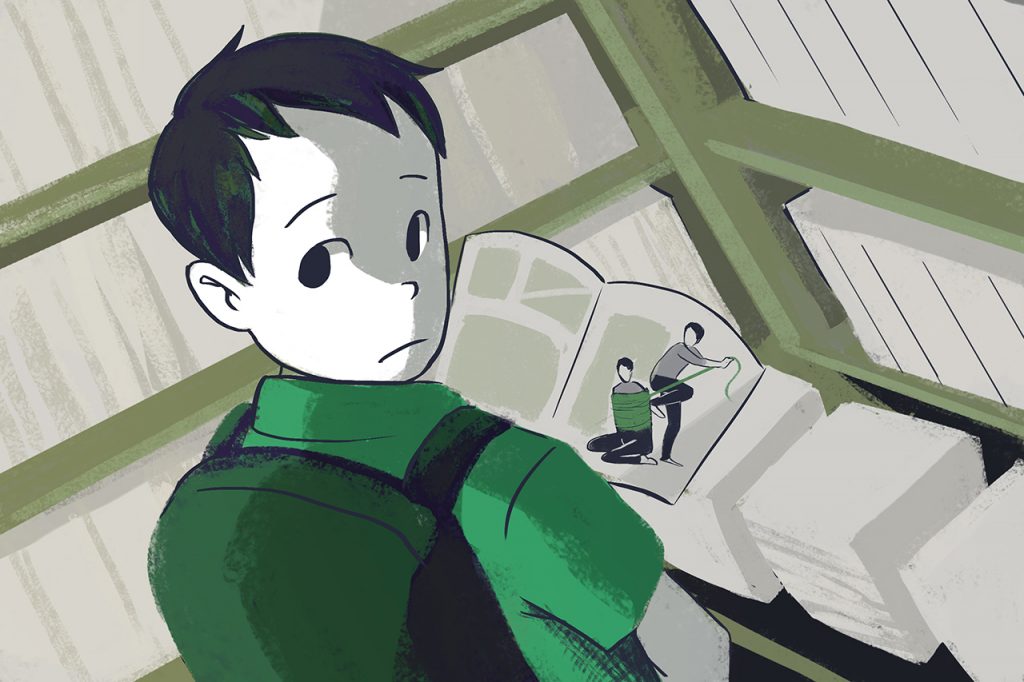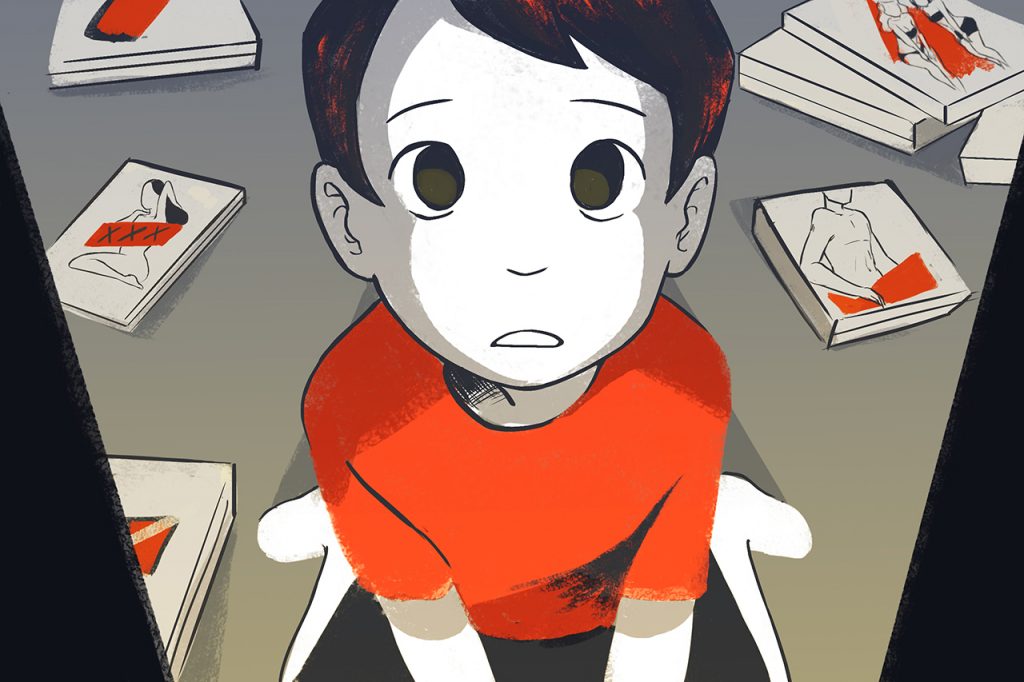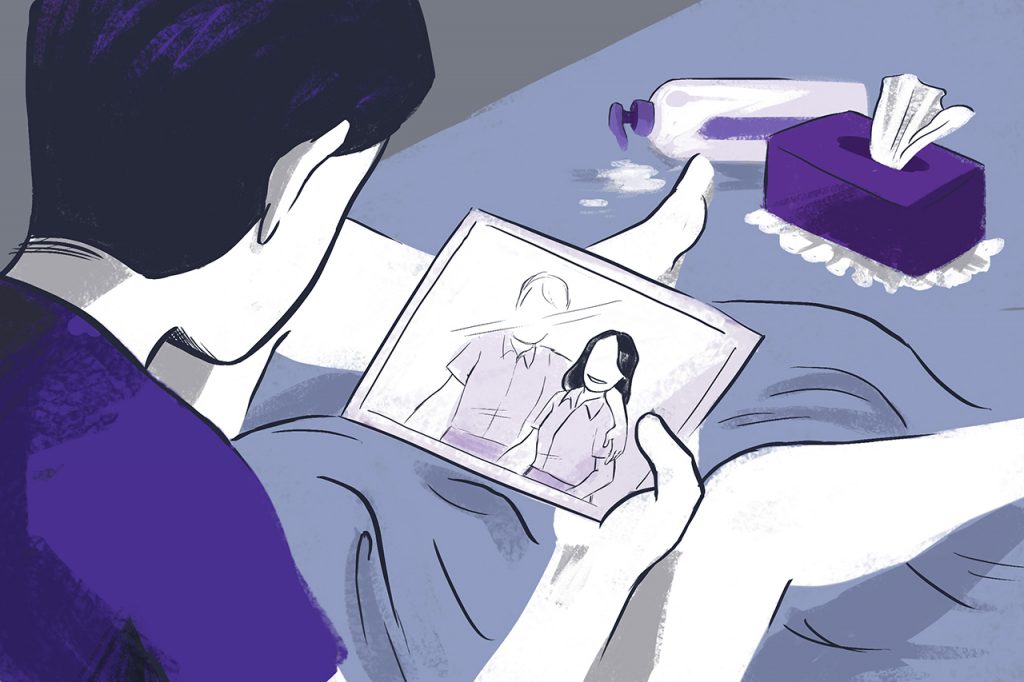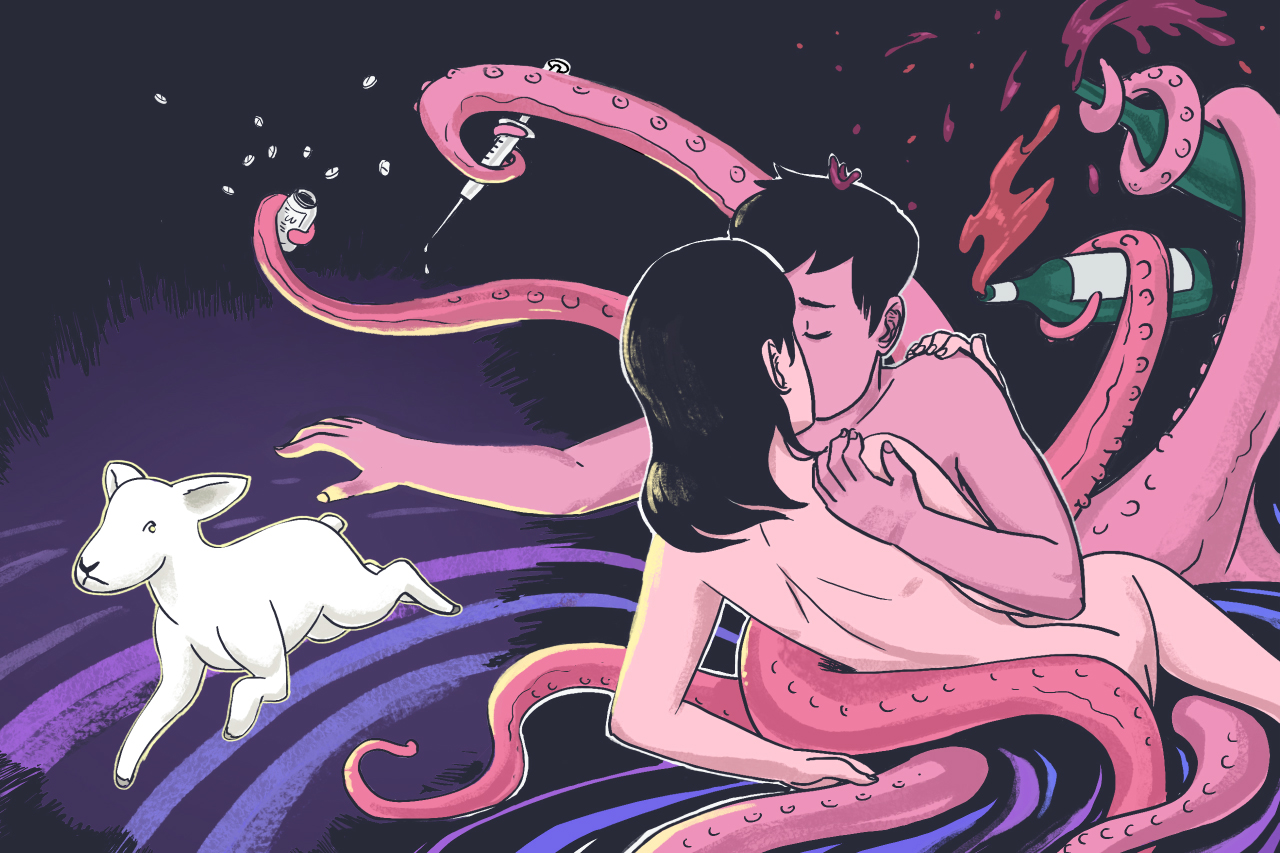It’s why we go on Tinder, it’s why we put ourselves in uncomfortable social situations, and if your parents never had it, you wouldn’t even be reading this right now.
When I realised I was going to speak to a few men who were former sex addicts, I was excited at the prospect of finally being able to have an honest conversation about sex. My head was filled with the pre-conceived notion that they were all seedy degenerates whose sole purpose in life was to locate orifices of their choice to facilitate their orgasms, not people merely looking for the meaning of love.
But while I did get my fair share of horror stories, I also learned that all three men identified as love addicts, rather than just sex addicts. This is why the 12-step group they are part of is called Sex and Love Addicts Anonymous (SLAA), with an emphasis on love addiction on top of sex.
And perhaps, having Genghis Khan levels of sex is their own way of swindling their brains into thinking that they have healthy doses of love in their lives. To do so, they stop short at nothing and are even willing to literally put their physical and emotional well-beings at risk.
Edwin tells me that in order to achieve the optimal levels of “love”, he would often put himself in harm’s way and risk contracting STIs, all in the name of the romantic fantasy he was in pursuit of.

For Edwin, it was more about chasing the fantasy of romance, and he sought anything deemed as elusive. This would include a tryst he had with an older man who was in an ongoing relationship.
“I was so head over heels in love with him that I would proceed to have sex with him on the weekends when his partner was busy,” he tells me, adding that he knew the man’s partner as well, and would often make googly eyes at the man in the presence of his partner as hiding in plain sight gave him a thrill.
However, despite feelings of worthlessness from knowing that the older man was only using him for sex, he was unable to tear himself away from the relationship because, for once, he felt that the man liked him.
Until an episode which brought intense humiliation and shame.
“The final straw was on one of the weekends. He had just finished up with me and got some kind of a message that his partner was on the way back. He didn’t even give me time to have a shower and clean myself,” Edwin says, with a look of incredulity.
“He just unceremoniously tossed me out, and I even had to take a different staircase so that I wouldn’t bump into his partner.”
Even then, that didn’t stop Edwin from pursuing relationships with other men who were already in relationships, and he even went as far as to threaten suicide when one of the relationships didn’t work out.
“For me, I was never so much wired for the one-night stand because I sought that companionship, that needing to be rescued and to be with someone stable. It became more about serial monogamy. I would date many people, be serious about them, then it would fizzle out and I would jump to the next one.”
For Edwin, the dopamine rush of endorphins from an orgasm served as a coping mechanism since he was in primary school.
“Even though I couldn’t ejaculate at that point because I wasn’t sexually mature, the orgasm reflex was present. It wasn’t sexualised at that point, but it’s about getting relief from the pain of life and discomfort.”
As it turns out, the pain that Edwin was attempting to get relief from was rooted in the fact that he did not grow up in a conventional family setting.
“I didn’t really grow up in a very happy home, my folks were fighting a lot. By the time I was in primary school, they had split up already. My mum was a single parent with two jobs, and I was not an easy kid either,” he explains, offering a possible correlation between the pain he felt as a child and his pursuits of love and sex as a panacea for his agony.
“We can see more potential mates in 10 minutes on the internet and “procreate with them” through masturbation than our ancestors could in a lifetime.”
“Our brains are indeed wired for sex and procreation. Evolutionary biology tells us that we are wired for a few partners, one at a time over a limited fertile lifespan. We can see more potential mates in 10 minutes on the internet and “procreate with them” through masturbation than our ancestors could in a lifetime.”
“I used to have a Singapore map where I put stickers all over,” he laughs, explaining how he would keep track of his conquests.
Like Edwin, Marcus would also engage in one-night stands, with the intention of converting them into relationships.
“I would end up having half a relationship with many people. They were usually a lot older, as I needed them to feed my insecurity.”
This led to him having frequent sex with other men, and he estimates that like Edwin, the number of men he’s slept with is easily “two or three digits”.
For Marcus, the insecurity stemmed from deep-rooted judgement from the unlikeliest of sources—himself.
“I have plenty of acceptance. My friends, my mum, my sister, they were all accepting of me being gay, and I’m working in one of the organisations that are very openly gay or supportive. But none of that mattered,” Marcus says in a sombre tone.
“There was a lot of feeling like you’re not enough. Everything I do keeps feeding that same fear. My favourite thing to say to people was, “You’re wasting resources just by breathing.” I needed to put people down to feel better about myself.”
Like Edwin, Marcus’ need to satisfy his needs for fantasy, love, and sex culminated in the same self-destructive behaviour of seeking older, unavailable men. Both men have attempted or entertained thoughts of suicide, with Marcus almost going through with an attempt just last August following the end of an abusive relationship. Thankfully, he decided to go to a 12-step meeting with SLAA instead.

“I liked girls, and I was not only curious as to how they developed, but I wanted to own them,” Andy says, giving us an introduction to his mind, where women were nothing but commodities.
“My motivation in school was to win the girl by doing well in school and getting her attention. I also started to do sports and did well in every area so I could get the attention that I deserved,” he says, attributing this to the fact that he did not get the recognition nor attention he craved as a child.
He pursued almost every woman he could find and took pride in the fact that he could attain them easily. Like Edwin and Andy, he too found the thrill of putting himself in dangerous situations addictive.
“When I met my girlfriend, I would manipulate her into masturbating for me. It was to an extent when we were in a bus, and even when it was one-third full, I asked her to put her hand in my pocket to just give me relief, cause I didn’t care. My sexual needs were more important than anything in the world.”
This continued into his adulthood when he once called a girl who he knew had a crush on him and arranged to meet at budget hotels for sexual relief. After the job was done, he would just leave.
“I didn’t even offer to buy her a meal,” he says, with a tinge of guilt.
At 24, Andy found himself in the most committed relationship he had ever been, and he had the intention to “get serious” for the first time.

This was the first time he put someone else’s need in front of his own.
Unfortunately, this backfired.
“I had an event that went well, my colleagues were happy, the work was good, my relationship was good, so I acted out with another woman.”
For Andy, sex was cathartic. It was a reward. Abstinence was tricky because of the warped reward system he had created for himself.
He explains to me how the addict in him would rationalise things: “Wah I stopped smoking for a month! Today I’m going to smoke one packet. I’ve been faithful to my woman for three months? I can act out with another woman.”
Through his lens, it makes perfect sense. As sex was the one thing he craved the most in the world, how better could he give himself a pat on the back for his accomplishments than by acting out sexually?
According to Mr Da Roza, sex addiction involves the same or similar neurological-pathways, neurotransmitters and other neuro-dynamic as found in substance or alcohol addictions. Sex addiction treatment is, however, more complex because we all have sexual needs and desires, and sex is a way of forming healthy, intimate meaningful relationships—and to have spiritual experiences.
In other words, the tricky thing about sex is that it’s a perfectly normal human function.
“For an alcoholic, sobriety and sober behaviour are straightforward—stop drinking. For a food addict, sobriety just means managing portions, the number of times they eat and what they eat. It’s easy to define these boundaries, even if it is a struggle to stay within them,” he explains.
For sex addicts, complete abstinence from any sexual activity is a practical response, much like controlling the urge to not scratch a literal itch.
“It won’t kill us or them to stop having sex, as opposed to eating. The suggested initial therapeutic sex abstention period is 3 to 6 months, depending on the nature and extent of the addiction.”
For these men, sex is a natural byproduct of love. As Andy justified to me, “Sex is an affirmation of love. If there is love, there must be sex.”
This emphasis on love seems to almost always stem from a lack of love from elsewhere in life. For Andy, his immense fear of having to sleep alone at night resulted in him acting out and making sure he would always have someone beside him.
“I’m doing real estate now, cause I didn’t have a proper home. I didn’t feel the love of a home,” he tells me.
Edwin lacked love from a conventional household. Marcus lacked love for himself, which stemmed from his limited self-confidence. Andy desired the love from having a whole family and a warm home; a place of his own that he could call his sanctuary.
Most addictions take the form of a multi-headed hydra. In this case, sex addiction takes the form of the body, the symbol of our carnal urges. Love addiction is then represented by the head, which yearns for affection and companionship. Cut off the head, and the body will die.
Which leaves me with the question: Why is love so easy to receive, but so immensely difficult to give?






